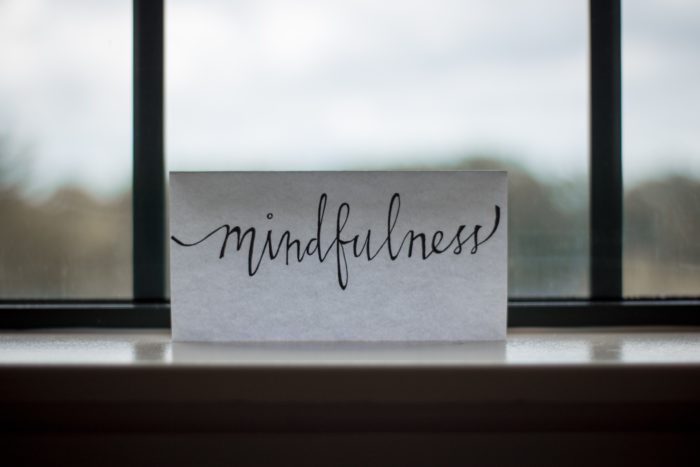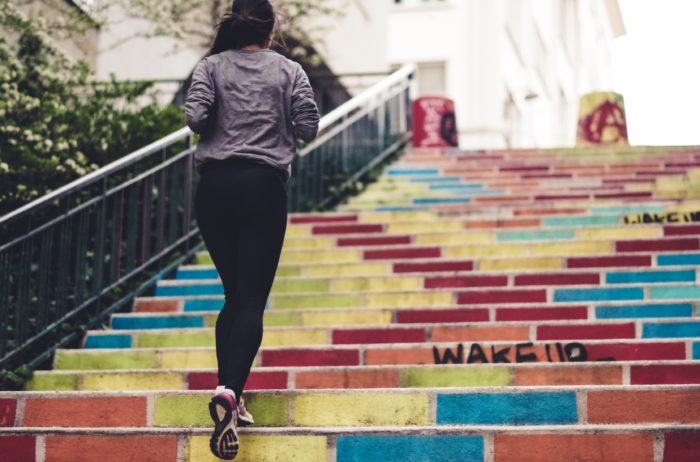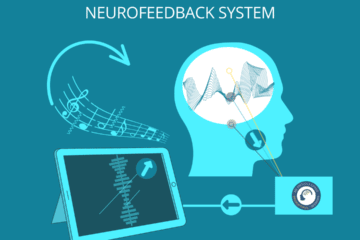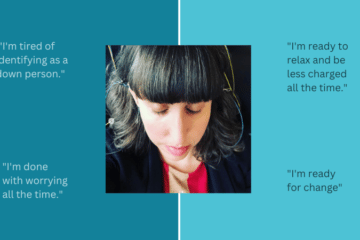Life in NYC or any large metropolitan area has its ups and its downs. Living in a city we are constantly bombarded with people in our personal space, loud noises, strong smells, crowded subways and the list goes on and on. Our central nervous system is taxed and most of us are living in a state of stress as our bodies respond to the environment around us day to day.
Fnding ways to slow down, calm down, and destress is very important. In this article therapist and neurofeedback trainer, Alison Pepper LCSW explores 5 ways we can all work with stress in New York City.
Stress is ever prevalent in our society today. I think we all know this based on our personal experience but did you know that across the country stress is being expressed and experiences on much higher rates now than it was 20 years ago? Dr. Sanjay Gupta explores this in a recent documentary for CNN, One Nation Under Stress.
How do you deal with your stress? We tend to have our go-to activities or places for rest and self-care. If you think about these things regularly or you are looking for new ideas or inspiration.
Here Are 5 Ways To Slow Down And Destress In New York
1) Neurofeedback Training
Neurofeedback is a safe and non-invasive brain training tool that builds resilience and flexibility. The NeurOptimal® neurofeedback machine works by training the brain to use present moment information to decide what to do next, rather than old, out-of-date information.
This advanced brain training technology–developed in part by NASA-level engineers — works by triggering what is called the orienting response, which is the brain’s ability to sense change in the environment and take in new information about what is different. This helps the brain and central nervous system reset itself by looking at habitual patterns on a subconscious, electrical level. Neurofeedback sessions offer you time to simply take care of you. To learn more about neurofeedback and how to get the best results from brain training check out this blog by therapist and neurofeedback trainer Natalie Baker LMHC.
Neurofeedback might be for you if you are
• Feeling frazzled or stressed
• Looking to calm down and relax
• Hoping to enhance your creative process
• Support or deepen your meditation practice
• Find more internal and external stability
• Longing to connect more with the world around you
2) Meditation

Meditation is a powerful practice that has been utilized for over 2500 years. Whether meditation is part of your spiritual path or part of your health and wellness routine it can bring tremendous benefit and support. Research today confirms that meditation can greatly impact and change the brain.
Neuroscientist Dr. Richard Davidson at the University of Wisconsin has done extensive research on meditators and documented the brain changes from meditation using fMRI imaging. His main findings show that the right prefrontal cortex, which is connected with experiencing sadness, has decreased activity after meditation training and the left pre-frontal cortex, which is connected with feeling happiness has increased activity.
Mindfulness meditation has now been linked to enhanced mood regulation and positive emotions, as well it builds focus, awareness, and empathy. Meditation isn’t only for adults, the research is also being done on children and showing that they benefit greatly from the practice at home and at school.
ALSO READ: When and How Do I Meditate With My Child
Meditation Instruction NYC
One aspect of my therapy practice is providing meditation instruction when needed and appropriate. I also teach in shrine rooms and classrooms from time to time around the city, upstate, and beyond. How to starting a mediation practice tends to be a focus in my work but the other major areas are often explored:
• maintaining a regular practice by finding the inspiration to continue meditating even when life is stressful or when meditation feels flat or boring
• preparing for retreat as well as integrating upon retreat from the retreat
• how Buddhist teachings like the 5 wisdom energies, the 4 karmas, or the 5 scandals can help people work with their mind and work with difficult people or situations in their lives
Tips for your meditation practice:
If you have a meditation practice already things to think about:
- how is it benefiting your daily life
- and how can you take that deeper?
If you are hoping to start a meditation practice consider what inspires you and how you would want to connect? Perhaps The book Wisdom of No Escape by Pema Chodron, or an app like Headspace or Buddhify. Hundreds of podcasts are also available and classes as well as retreats are becoming more popular and offered in a wide variety of spaces. Anyone can practice meditation, anywhere, and it’s free!
3) Getting Creative With Exercise

A little bit of exercise can go a long way. And getting creative about how you think about exercise and how you do it can really help. It doesn’t have to be this long tiring thing you do at the gym.
It can be short and sweet but the key is that one does it. So being realistic to what will fit into your life and what’s inspiring to you is important.
As routine is important for our minds, to relax, it does magic for our bodies as well. Regular sleep, sport, eating habits. Most people don’t realize it until they have a problem. Sensitive people see it on a daily basis. Did they skip an hour of sleep? Or a meal? Or did they skip daily exercise? A simple routine skip can lead to constipation, tiredness, headaches or an angry mood during the day.
ALSO READ: EVEN A LITTLE EXERCISE MIGHT MAKE US HAPPIER
4) Getting Outside and Getting Out of the City
Getting out of the city might not always feel doable but even within NYC, there are places like Inwood Park, Central Park, and Prospect Park where you can find some green, some space, and some sky. Connecting with nature has been seen to reduce heart rate and decrease feelings of depression and anxiety. Like meditation, exercise, and neurofeedback nature has a positive impact on the human central nervous system. Spending time outside or out of the city can be a powerful way to recharge and relax.
Being outside; walking by the ocean, hiking in the woods, swimming in a lack, or playing sports are all moments we can disengage from our screens. As technology gets better and faster our need to stay connected grows to. Being outside in an opportunity to work with our phone or screen habits directly.

5) Discovering Quiet Places
Like in nature finding places where you can experience some stillness and quiet will go a long way to support a frazzled nervous system. The city offers so much but I think we forget at times that all the city has to offer is not helpful or support to mind, body, and spirit. Places that are quiet and calling could be the tiny park outside your office or the tea shop you pass by on your way home that is always empty. Quiet spaces could be stepping out of your house when young children screaming inside to walk around the block, your hair salon, nail spot, favorite bookstore, or place of worship.
Once you find these quiet place, visit them. Make time for them and for you. The more one can decompress the more one can open up and do. The challenges of life will constantly ebb and flow around us but how we care for ourselves will greatly impact how we feel and how we can care for others.
How To Get Help For Your Stress and Anxiety?
When stress and anxiety become too big, whey they take over your life and begin to impact how you feel everyday, your job, your relationships it might be time to ask for help. Start simple, talk to a friend or family member.
Therapy and different forms of treatment are out there for anxiety. Here at Buddhist Psychotherapy NY we provide psychotherapy and can offer neurofeedback to supplement that therapy. To read more about my experience with neurofeedback and why I train others click here.
f you are wanting to meet a new therapist a great place to start is Mywellbeing.com or contact Alison directly for a free 15-minute consultation call.


